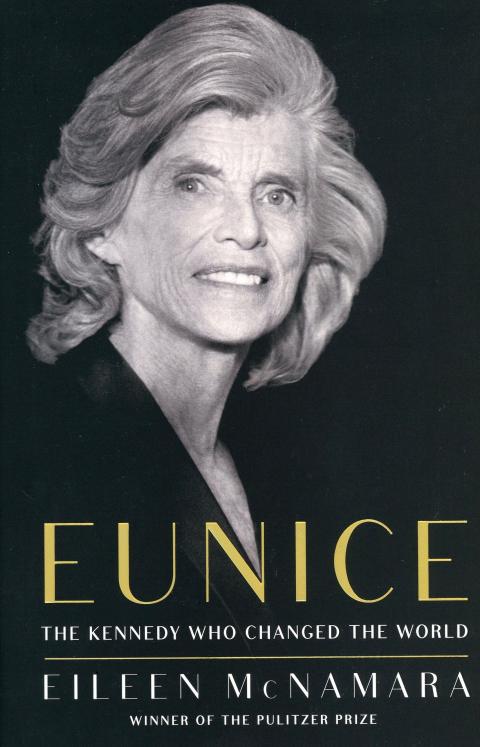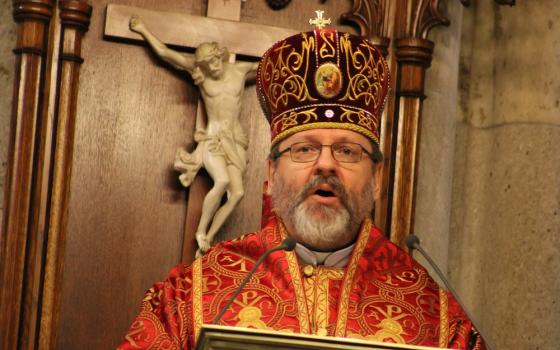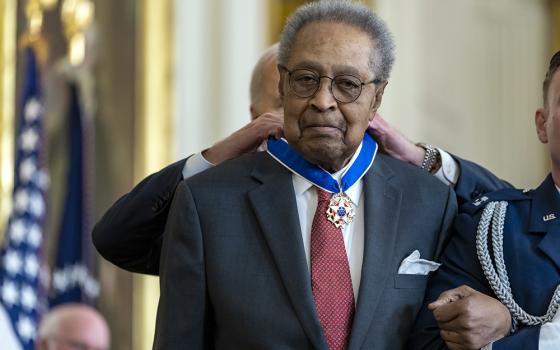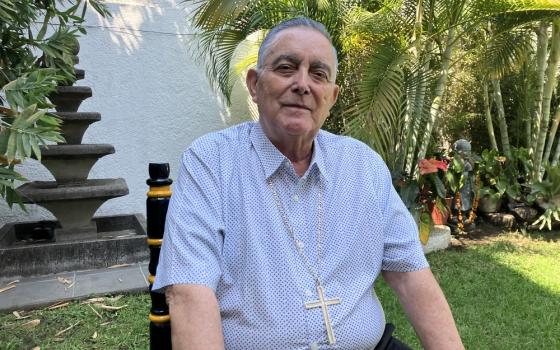
(CNS)
In the fall of 1975, Sargent Shriver, the first director of the Peace Corps, opened his campaign for the Democratic nomination for president. His wife Eunice contacted Dorothy Day, requesting an endorsement for her husband. Day, co-founder of The Catholic Worker in the 1930s, was a practicing anarchist who never voted and had little choice except to decline. Instead, she wrote in her diary, she would pray for the candidate.
That summer Eunice invited Day to her home amid the grassy lawns and wide beaches of Nantucket Sound in the Kennedy compound on Cape Cod. In her diary Day saw her host "driven by some sense of duty and the responsibility which goes with wealth and her family's experience in politics. And what tragedy … and how brave a family. With the violence of our day and kidnappings so prevalent, resentment of the rich so strong. I marvel that they do not live in fear, but they have faith, the Faith."
The well-told story of the amicability of these two women, each driven by a mission of mercy and peace that lifted the lives of uncountable numbers, is among the reasons that Eileen McNamara is a biographer to whom we owe a sizable debt. In Eunice: The Kennedy Who Changed the World, we have a deeply researched account of a woman whose professional life brought about systemic and political changes for the world's mentally disabled and whose personal life had a lock on vivacity and genuine love.
I'm pleased to say that my wife and I welcomed McNamara several years ago to our home in Washington for a long interview of recollections on our friendship with Eunice. Indeed, we had plenty: going back to the mid-1960s when I lucked out by being hired by Sargent Shriver as his speechwriter at the Office of Economic Opportunity. It wasn't long before Eunice called on me for an occasional sprucing of her words, whether it was testimony before a congressional committee or a college lecture.
Nor was it long before she opened both her home and heart to my wife and I, whether it was making sure we were on the invitation list for the family's dinner parties with guests like Fr. Hans Kung or coming to Hyannis Port for a few relaxing summer days. One of the pleasures found in the pages of McNamara's biography, aside from its easy-flowing prose befitting a Pulitzer Prize columnist at The Boston Globe for nearly 30 years, is appreciating the diversities that spiced the life of Eunice to its end at age 88 in 2009.
McNamara writes:
Today her name is synonymous with Special Olympics, but Eunice Kennedy Shriver's career in public service began decades before she opened the first games on a sunny July afternoon at Chicago's Soldier Field in 1968. She worked at the US State Department two years before Jack arrived on Capitol Hill in 1947. She administered a task force at the US Department of Justice on juvenile delinquency fourteen years before she talked Bobby into tackling that issue as attorney general in 1961. She denounced the long prison terms meted out to the nonviolent offenders she counseled at Alderson, the federal penitentiary for women in West Virginia, more than 25 years before Ted championed that same cause as chairman of the Senate Judiciary Committee in the late 1970s.
Getting up to speed after all of that, it was no accident that Eunice would become a woman of fervor. Leaving aside the Special Olympics, the world's largest sports program now in 172 countries with one million coaches and volunteers helping 5.6 million athletes, her successes at pushing politicians to fund programs for maternal and child health, the mentally and physically disabled and for the warehoused would easily be enough to place her at the highest levels of public service. What America's media didn't see or appreciate, whether self-blinded or lazy, McNamara singularly did. Her book rectified a wrong: "For all of her influence and impact, Eunice Kennedy Shriver lives in public perception at the fringe of her brothers' life stories rather than at the center of her own. Of the hundreds of books written about the Kennedys, none has focused on the member of the clan who made the most enduring mark. This biography is an attempt to correct that record."
The work's epigraph are lines from Day: "Don't call me a saint. I don't want to be dismissed so easily." Perhaps to keep at bay any effort to put a halo atop Eunice, McNamara provides ample grist for the Vatican's Devil's Advocate to slow or stop a canonization. As the CEO of Special Olympics Eunice "made employees long for a boss who was merely mercurial in her demands. By one count, [she] went through twenty-one assistants in four years, or one every few months. It wasn't just that she was short-tempered and impatient, expecting a task to be done before she finished assigning it. Her attention was so scattered and her agenda so full that few could keep up with her."
Within the family, tiffs occurred. When Amanda Smith, a niece, attempted to publish a book of Kennedy letters and photographs, Eunice's demands for certain deletions were of such strength that the project was dropped. A grieved Smith wrote to her aunt to express her "disappointment and frankly, disgust" at the interference: "I am struck by the uncalled for pettiness, imperiousness, arbitrariness, and suspicion with which you've treated me."
Advertisement
Okay, Eunice's bossiness could be grating. But in the context of all her positive involvements, fidelities, philanthropies and passions, one or two negatives are of little consequence. She suffered long bouts of ill health, surgeries, survived a high-speed car crash, saw four of her siblings die young and her husband fade into Alzheimer's. Her son Tim, the chairman of Special Olympics for 14 years, believes it was his mother's spiritual life that strengthened her amidst it all: "We prayed the rosary as a family on many occasions, and I remember hearing my mother dedicate the prayers again and again to the repose of her brother's souls, intimating that our grief could be channeled through the beads and converted from pain to peace."
More than once, I was touched by witnessing Eunice's maternal graces that she showered, in different ways, on each of her five children. Maria Shriver said: "The very same woman who made grown men quake in their boots when she stepped foot on Capitol Hill was the very same woman who spent quality time with each and every one of us, making us feel loved, making us believe in [ourselves]."
Let's finish with Eunice summing up her life and the many losses she overcame. In a 2007 ceremony honoring her at the John F. Kennedy Presidential Library: "The combination of the love of my family and the awful sting of rejection helped me develop the confidence I needed to believe that I could make a difference in a positive direction. It's really that simple: love gave me confidence, and adversity gave me purpose."
[Colman McCarthy directs the Center for Teaching Peace, a Washington non-profit].











